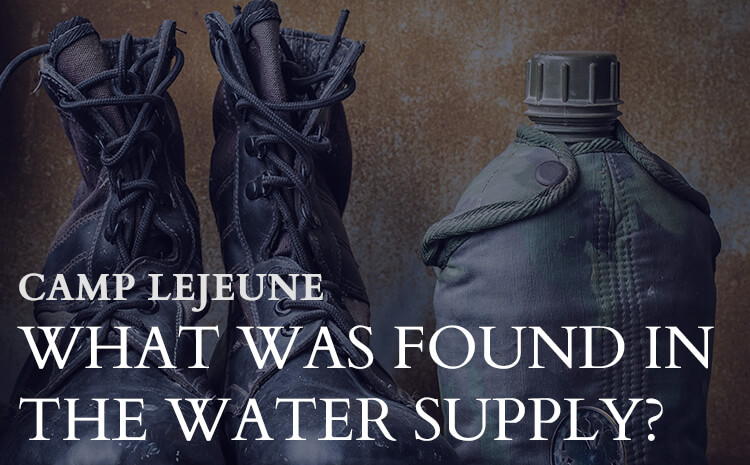
Exposure and Cover-Up
Individuals who lived or worked at the U.S. Marine Corps Base Camp Lejeune, North Carolina between 1953 – 1987 could have been exposed to water contaminated with toxic chemicals. Marines, their family members, and civilian workers may have drunk, bathed in, or cooked with water contaminated with harmful chemicals at concentrations from 240 to 3400 times levels that are considered safe.
Exposure to the contaminated water has been linked to significant health issues, including kidney cancer and leukemias, as well as adverse birth outcomes. Furthermore, by refusing to accept responsibility and actively seeking to cover up these contamination issues, the United States Marine Corps prevented exposed and harmed individuals from obtaining timely and proper medical care, treatment, and assistance for their ailments.
What Was Found in the Water?
When discussing toxins and contaminates, it is important to remember that not all water at Camp Lejeune came from the same source, and not all water was exposed to contamination. Camp Lejeune was served by eight water treatment plants, and it was discovered that two of the eight treatment plants were contaminated; the Tarawa Terrace and Hadnot Point water treatment plants. Both treatment plants served housing units, barracks, administrative offices, schools, and recreation areas, while the Hadnot Point plant also served the base hospital for a period of time.
For a detailed look at the contaminants found at each plant, please click here.

The most common toxins veterans, family members, visitors, and civilian workers were exposed to are Perchloroethylene (PCE), Trichloroethylene (TCE), benzene, vinyl chloride, and other compounds. These toxins are chemicals that have many uses that include making plastics, creating cleaning products, deoxidizing metals, creating pesticides, as industrial lubricants, and many other industrial processes. More than 70 chemicals were identified as contaminants in the water. All of these substances were known to be toxic and harmful to humans. However, it was not until 1999 that the USMC would inform former base residents that they might have consumed contaminated water.
Don’t Wait, Take Action
At Gold, Khourey & Turak, we understand the sacrifices our servicemen and women make every day to serve and protect our nation, communities, and families. In fact, for us, it’s personal. Over the years, GKT employees have served our country in the armed forces and many of their spouses, family members, and friends have served or are currently serving. You have proudly served your country and now it’s our turn to serve you. We want to fight for you and the compensation you deserve.
If you or a loved one served, worked, or resided at Camp Lejeune in North Carolina for at least 30 cumulative days from August 1953 through December 1987, and you suffered serious health issues, you could be entitled to compensation. We offer free consultations and there is no fee until we obtain compensation for you. Contact our office 24 hours a day by phone or text at (304) 845-9750, or online through our Live Chat feature or our no obligation consultation form



